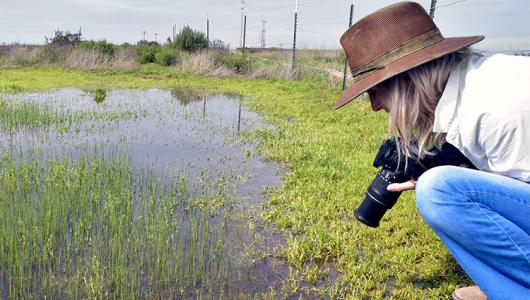The Census of Agriculture is a complete count of America’s farms, ranches, and the people who operate them. Conducted once every five years, Census of Agriculture results provide valuable insights into the lives of America’s farmers and ranchers for people outside of agriculture as well as state and federal governing bodies. For producers, Census results can inform management decisions now and into the future.
USDA’s National Agricultural Statistics Service released 2017 Census of Agriculture results on April 11. With their new Census Data Query Tool, accessing data is easier now than ever.
Are you interested in county-, state-, or national- level data detailing:
-
the number of operations in your selected area, broken down by size?
-
the number of new and beginning producers, or those who’ve served in the military?
-
a breakdown of farm production expenses, including dollars spent per expense type?
-
land use practices in your area of interest, such as acres managed with no-till?
-
a breakdown of selected crops harvested, or inventory and sales of livestock?
These are just a few questions the Census Data Query Tool can help you answer – all in five clicks or fewer.
If you’re interested in 2017 Census of Agriculture highlights, NASS has published two new fact sheets with national-level data on farm producers and farm economics.
Ten key takeaways are:
-
In 2017, the total number of producers in the U.S. was 3.4 million. The 2017 Census of Agriculture included revised questions to identify a producer as someone involved in making decisions on the farm. This led to a nearly 7 percent increase in people who identify as producers from 2012 to 2017.
-
The total number of female producers increased by nearly 27 percent since 2012. With qualifications re-defined in the questionnaire, the number of females identifying as producers increased from 970,000 in 2012 to 1.23 million in 2017. During the same period, the percentage of male producers decreased by 1.7 percent.
-
The average age of all producers in 2017 was 57.5 years, which is 1.2 years older than 2012’s average. This reflects a long-term trend of aging in U.S. producers. An age breakdown across the country was as follows:
-
Beginning farmers made up 27% of all producers in 2017. These farmers are classified as having 10 or fewer years of farming experience. Their average age was 46.3 years.
-
Over 370,000 producers had served or were serving in the military in 2017. This accounted for 11 percent of all producers. Of all farmers with military experience, 81 percent had farmed for 11 years or more.
-
In 2017, farms and ranches across the U.S. produced $389 billion in agricultural products. This is down from $395 billion in 2012. Crops and livestock commodities each accounted for half of this total, with the total value of crops in 2017 at $194 billion and the total value of livestock at $195 billion.
-
The total number of farms across the country declined between 2012 and 2017, from 2.11 to 2.04 million. Farms covered a total of 900 million U.S. acres.
-
The number of mid-sized farms declined between 2012 and 2017, but very small farms and very large farms increased in number. Very small farms are defined as having annual sales of $2,500 or less, and very large farms as having sales of $5 million or more.
-
Cattle/calves was the top ranked commodity in 2017, with over $77 billion in sales. This was followed by corn, poultry and eggs, soybeans, and milk as follows:
-
In 2017, 75 percent of farms in the U.S. had internet access. This is up from 70 percent in 2012.
We’re thankful for the 3.4 million producers across the country who participated in the 2017 Census of Agriculture. The results gained will help us mange programs and services to best serve America’s farmers and ranchers.
No matter the size, location, or function of your operation, USDA is here with resources to fit your needs. Visit farmers.gov or your local service center today to learn more.
For questions related to the 2017 Census of Agriculture, please contact your Regional or State NASS Field Office.
Elizabeth Creech is part of the team building farmers.gov to best support America’s farmers, ranchers, and forest landowners. She can be reached at elizabeth.creech@wdc.usda.gov.


